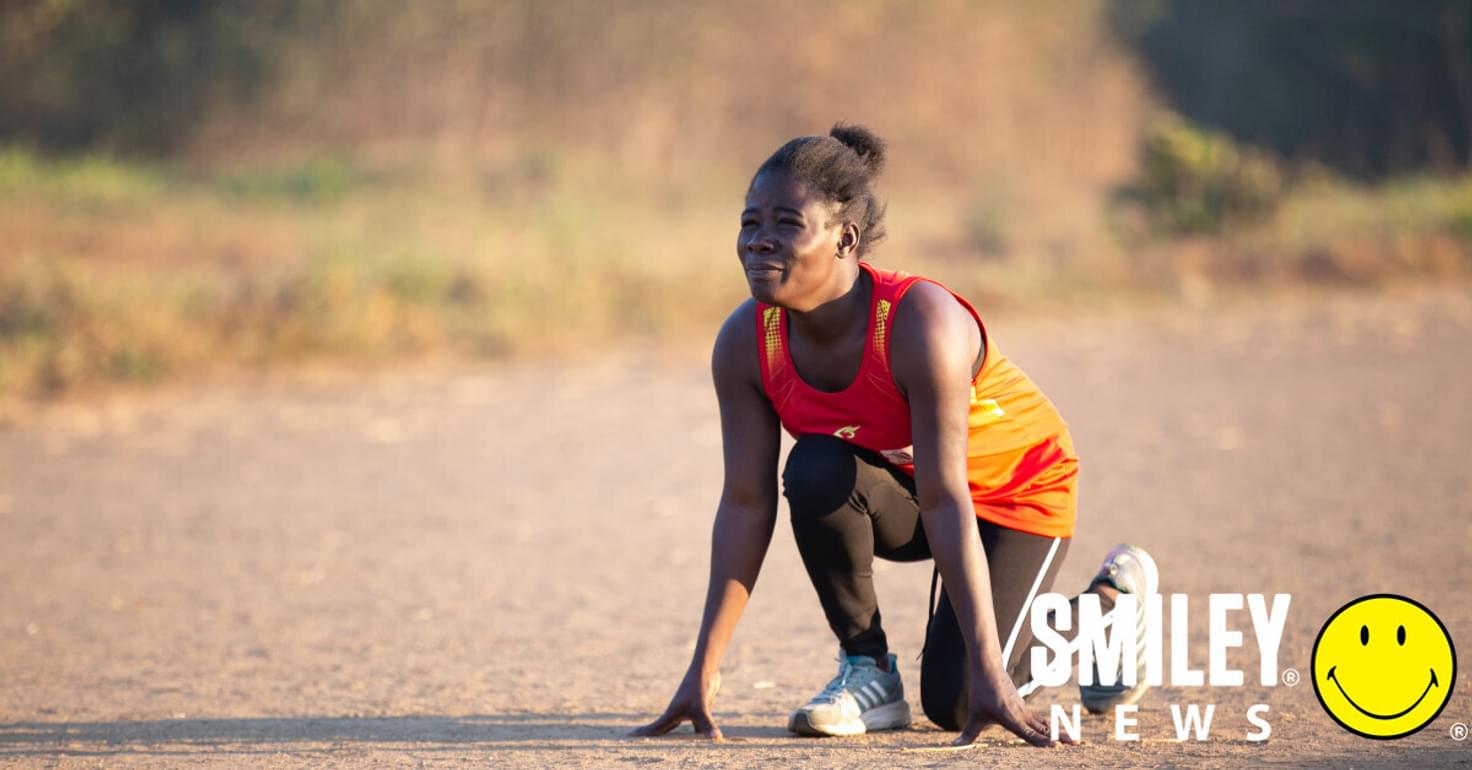
Words by Smiley Team
Taonere Banda is a remarkable woman.
She was born with a visual impairment, and didn’t get the chance to go to school until she was 10 years old. Now, she’s a middle-distance para-sport athlete from Malawi, who's competing in the 2021 Tokyo Paralympics.
In 2016, Taonere became the first athlete to represent Malawi at a Paralympic Games when she was selected to compete in Rio de Janeiro. She made fourth place in her qualifiers but was later disqualified for leaving her lane. She’s back this year aiming for a medal.
Taonere is supporting Sightsavers’ ‘Equal World’ campaign which calls for the rights of people with disabilities to be upheld around the world and for children with disabilities to be included in education. Here, she speaks to Smiley News about her life in Malawi, and how she got to where she is today.
[Read More: These colourful codes help blind people shop]
As a child, Taonere was sent to school once, but couldn’t see the blackboard – so she was sent home and told to come back when she was older and more literate. “It made me feel like education wasn’t for me,” she says.
“At first when I was able to go to school, I wasn’t allowed to participate in any sports activities because of my disability. The teachers didn’t believe that because I had a disability that I would be able to compete. They said they only wanted abled people to participate in sports. This all made me feel really bad about myself and I thought I was not able to do anything.”
Taonere started running when she was at school, after the age of 10, and discovered how much she enjoyed it. She wasn’t allowed to join in with the school sports lessons, though, because of her visual impairment.
“I was spotted by an organisation called NICE (The National Initiative for Civic Education) who saw my potential,” she says. “They suggested I go and participate in athletics. And it was only when I started doing this that I realised that was I could not only run in competitions, but also that I was good at it.”
Running makes Taonere feel happy, she says. It helps her keep physically and mentally fit. “I am always interacting with different people, so I don't feel like I’m segregated,” she says. “It also means I get lots of chances to travel and see more of the world.”
[Read More: How these donkeys are crucial to clean water for millions]
After being spotted by NICE, Taonere started competing in athletics competitions at high school. She surprised everyone and was chosen to participate in a local competition – and she won.
“After this I started running in national and international races,” she says. “It was the President of the Malawi Paralympic Committee James Chiutsi who informed me about the games as I had been spotted to be the best Malawian para athlete. I then met representatives from the charity Sightsavers who came to my home village and said they were going to help me to prepare for the competition.”
Taonere says she loved being able to travel to her first Paralympic games and take part in an amazing event, but she was disqualified – and it made her lose morale. “Although it went that way, I learnt an important lesson and I won't repeat the same mistake in Tokyo,” she says.
“I have been training hard with my coach Agnes to pace myself well across the race. I want to be on top of the world. I also want the world to know that disabled people are capable. We can do sports and put our countries on the world map. I hope to make Malawi proud.”
There are millions of girls with disabilities who still don’t go to school because of negative ideas about gender and disability, says Taonere. “Some people still believe that people with disabilities can do nothing to participate in society,” she says.
[Read More: Beach wheelchairs let care home residents enjoy the sea]
“This is not true. Disability is not inability. I want children with disabilities to see me as a visually impaired person competing, travelling and achieving, and see that it can be done. These children should not look down upon themselves like I was made to do.
"They should look at me and believe that they can do it too.”
Find out more and support Sightsavers’ ‘Equal World’ campaign.